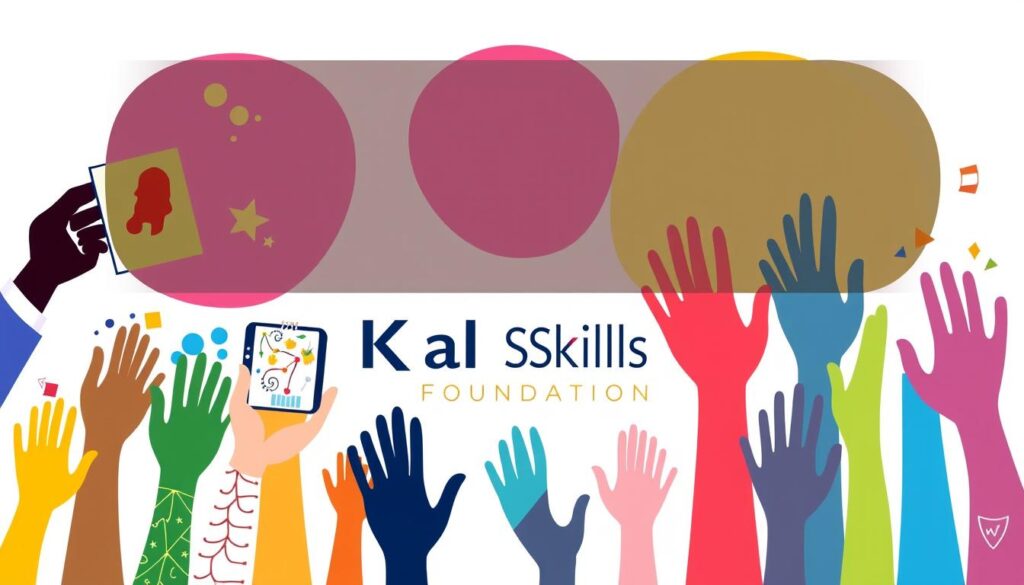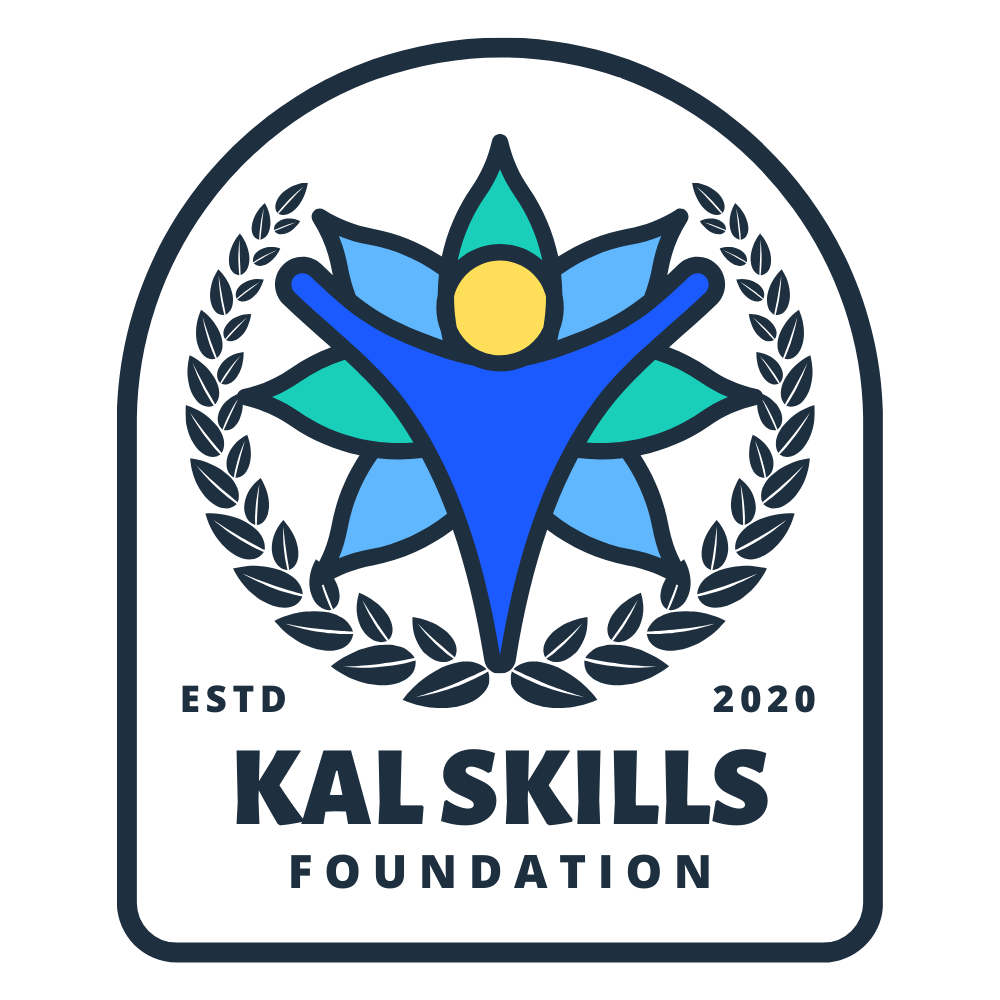Have you thought about how mastering life skills could boost your career? Adding these skills to your professional and personal growth can greatly improve your abilities. It also helps a lot in achieving career success. In today’s fast-changing world, having these skills is not just good; it’s necessary.
For example, chartered accountants are key in shaping companies. They need skills like good communication and critical thinking1. Also, strong emotional intelligence can change how we work together, leading to success2.
As you move forward in your career, learning life skills will help you face challenges and grab opportunities. This article will show how these skills are a blueprint for success. They help you do well in teams and contribute to your company’s health. Let’s discover the life skills that will help you achieve your goals.
Key Takeaways
- Life skills are crucial for navigating professional landscapes effectively.
- Developing communication skills enhances teamwork and collaboration.
- Emotional intelligence is vital for building strong workplace relationships.
- Adaptability and critical thinking are essential skills in dynamic environments.
- Continuous learning is necessary for ongoing career success.
Understanding the Importance of Life Skills in Career Success
In today’s fast-paced job market, having strong life skills is key to career success. Employers look for candidates who can adapt, as 82% see this as crucial3. Life skills include communication, teamwork, and emotional intelligence4. These skills make your work environment better and more productive.
Research shows 67% of professionals value initiative and self-direction in their careers3. This highlights the importance of personal growth. Also, 73% of employers say teamwork is vital for project success3. So, improving these skills helps you grow and helps your team too.
Effective time management can boost goal achievement by 30%3. Employers want candidates with both technical skills and life skills4. Emotional intelligence helps you get along with others, making work easier5. So, working on life skills not only helps your career but also makes you happier at work.
| Life Skill | Importance in Career Success |
|---|---|
| Adaptability | Essential for navigating change and challenges |
| Effective Communication | Key for collaboration and leadership roles |
| Emotional Intelligence | Builds strong interpersonal relationships |
| Time Management | Critical for meeting deadlines efficiently |
| Problem-Solving | Helps in overcoming career challenges |
| Teamwork | Enhances project effectiveness and cooperation |
Professional Development: Key Skills for Career Advancement
Your journey in professional development is shaped by key skills for career growth. In today’s fast-changing work world, being adaptable and flexible is crucial. These traits help you tackle challenges and welcome new changes.
Adaptability and Flexibility in the Workplace
Companies want employees who can handle new situations well. The World Economic Forum’s Future of Jobs report says adaptability is key for employers6. Being open to learning new things can boost your success in many fields7.
Effective Communication: The Cornerstone of Professional Relationships
Good communication is key for strong work relationships. Harvard’s Division of Continuing Education says employers value skills like analytical thinking and emotional intelligence6. Clear and engaging communication can greatly impact your interactions, whether in talks, writing, or online meetings6.
Critical Thinking and Problem Solving for Dynamic Environments
Critical thinking and problem-solving are vital for tackling complex work challenges. Harvard Business Review notes these skills are crucial in roles like corporate strategy and marketing7. Improving your problem-solving can make you more efficient and help your team succeed7.
By focusing on adaptability, communication, critical thinking, and problem-solving, you’re on the right track for career success7.
Personal Growth: A Continuous Journey of Self-Discovery
Personal growth is a key journey of self-discovery. It helps us learn and improve continuously. Knowing our strengths and weaknesses is the first step towards self-awareness, a vital part of personal development.
Being self-aware boosts our skills in interacting with others. It also increases our self-confidence, leading to a better self-image and stronger relationships. People who focus on personal growth often feel more fulfilled and happy, finding a deeper purpose in life8.
The Role of Self-Awareness in Personal Development
Self-awareness is crucial for personal growth. Studies show a 15% rise in self-reflection among those working on self-improvement9. Knowing our motivations and reactions helps us tackle life’s challenges better, making us more resilient.
Those who value self-awareness find it easier to connect with others. This improves both personal and professional relationships.
Setting SMART Goals for Personal Growth
SMART goals—Specific, Measurable, Attainable, Relevant, and Time-bound—are a structured way to grow. People who set clear goals are 42% more likely to reach them than those without9. This method focuses your efforts and aligns your growth with your values, boosting motivation and progress.
Setting goals also helps you stay committed, even when faced with obstacles. Learning continuously, through education or online courses, increases your knowledge and skills. This leads to career success, job satisfaction, and higher earnings810.
Skill Building: Developing Essential Competencies
Building skills is key to growing in your career. Learning to manage your time well and network effectively can greatly increase your productivity. This part will show you how to manage your time and build strong professional relationships.
Time Management Techniques for Enhanced Productivity
Learning to manage your time well can make a big difference. Here are some tips:
- Prioritize Tasks: Use tools like the Eisenhower Matrix to sort tasks by urgency and importance.
- Set Specific Goals: Create SMART goals to help you stay focused and track your progress.
- Utilize Productivity Tools: Apps like Trello or Asana can help organize your tasks.
- Time Blocking: Set aside specific times for different tasks to keep your focus.
Networking and Relationship Building
Networking is vital for your career growth. Building strong relationships can open up new opportunities and mentorship. Here are some tips:
- Attend Industry Events: Going to conferences can connect you with others in your field.
- Utilize Social Media: Sites like LinkedIn are great for connecting with industry leaders and showing off your skills.
- Follow Up: After meeting someone new, send a quick message to keep in touch.
- Offer Help: Building relationships is about giving back; think about how you can help others in your network.

Improving your time management and networking skills can take your career to the next level. Keep practicing these techniques to see your productivity and professional connections grow. Remember, skill building is a continuous journey that needs patience and commitment1112.
Emotional Intelligence: A Key Component of Life Skills
Emotional intelligence is crucial for personal growth and bettering professional relationships. It helps us understand and manage our emotions and those of others. People with high emotional intelligence often do well in school and their careers. This is because emotional smarts are linked to better grades13.
Understanding and Developing Emotional Intelligence
Emotional intelligence includes self-awareness, self-regulation, motivation, empathy, and social skills. These parts help us control our feelings and get others’. Training programs can boost these skills. For example, students who learn life skills see big gains in emotional smarts14.
The Impact of Emotional Intelligence on Professional Relationships
Emotional intelligence greatly affects how we work with others. It makes us better communicators and helps us handle stress. This skill also helps us empathize and solve conflicts, making work environments better13. It even strengthens our social networks, improving our health13.
Continuous Learning: Embracing a Growth Mindset
Having a growth mindset is crucial in today’s fast-paced world. It helps you adapt and grow through life’s ups and downs. Research shows that 87% of people believe learning continuously is key for growth15.
This idea is the foundation for lifelong learning and skill building. It encourages you to seek out new knowledge and experiences.
Creating a regular learning habit can boost your potential. Studies show that 70% of those who learn regularly reach their goals15. You can learn through formal education or informal ways like online courses and blogs. In fact, 78% of people find these methods effective for learning15.
Curiosity leads you to explore new areas, helping you grow personally and professionally. A growth mindset lets you tackle challenges head-on. Notably, 65% of professionals with this mindset face challenges and keep going even when things get tough15.
When faced with obstacles, this mindset turns failures into chances to get better.
Learning with others also boosts your growth. Studies show that 82% of learners say working with others makes them more creative and innovative15. Working with diverse groups helps you share ideas and understand different views. This creates a space where everyone can grow and learn together.

In the end, a growth mindset through continuous learning helps you handle the challenges of your job. Staying committed to learning new skills keeps you relevant and ready for the future. Statistics show that 76% of professionals see the need to learn new skills to stay ahead in a changing world15.
The Role of Health and Wellbeing in Personal Growth
Health and wellbeing are key to personal growth. Keeping a balance between physical and mental health boosts your overall wellbeing. It also helps in career success. Studies show that those who focus on health have better mental health and less stress16.
Prioritizing Physical Health for Career Success
Regular exercise, a healthy diet, and enough sleep are crucial for physical health. They help in career growth. People who work on personal development see a 20% boost in self-esteem17.
Setting goals for physical health can also boost your career motivation.
Mental and Emotional Health Practices
Mindfulness and stress management are key for mental health at work. Research shows that those who practice mindfulness manage stress better and stay focused17. Positive psychology is also important. It focuses on meaningful activities, positive relationships, and feeling accomplished16.
By focusing on health and wellbeing, you create a space for personal growth. This helps you reach your professional goals. Remember, your strengths are vital in this journey, making your life and career more fulfilling16.
Leadership and Team Collaboration: Essential Skills for Success
Good leadership and teamwork skills are key to a productive workplace. Everyone can show leadership, not just managers. Working together boosts productivity and brings new ideas, which are vital for success.
Knowing how to work well together is crucial. It helps everyone do their best and achieve goals together.
Fostering a Collaborative Team Environment
Leaders need to set clear goals and encourage open communication. Without clear goals, teamwork can suffer. Using SMART goals helps keep everyone on track and accountable18.
Good communication is the base of teamwork. It means sharing ideas clearly, listening well, and giving feedback that helps. Emotional intelligence helps manage conflicts and improves teamwork.
It’s also important to know who does what and the team’s rules. Using shared documents and agreements helps keep things clear. Frameworks like DACI help make decisions faster and clearer18.
Listening well is key to understanding each other. It means really paying attention and responding thoughtfully. This helps everyone feel included, even those who need more structure19.
Being able to solve problems is also vital. Techniques like problem framing and the 5 Whys Analysis help find the root of issues. This makes the team better at solving problems and coming up with new ideas18.
Knowing how to use tools like Slack or Basecamp helps manage projects and share information. Being adaptable and able to solve conflicts helps the team work well together. Building a team that values these skills is the key to lasting success.
Adapting to Change: An Essential Life Skill
Adapting to change is key in today’s fast world. It helps in personal and professional growth. When facing tough times, your mindset plays a big role in bouncing back.
Building Resilience Through Change
Resilience is about handling life’s changes well. People may feel anxious or even get PTSD when facing new situations20. Depression can also come from these changes, showing why building resilience is so important20.
To build resilience, try these steps:
- Step out of your comfort zone for valuable experiences.
- Think about past experiences to learn about your adaptability.
- Keep an open mind and learn from adaptable people.
- Change gradually to adapt better over time.
- Focus on what you can control, not what you can’t20.
In today’s fast-changing tech world, being adaptable is key for career success21. Those who adapt well in job roles and tech do better. Having a strong support network helps too, offering guidance and a sense of belonging21.
Being flexible helps you adjust to sudden changes in plans and views. Embracing uncertainty is crucial for growth21. Trying new things opens up new possibilities, making you more adaptable21.
By working on your resilience, you’re not just ready for change. You’re using it to grow personally and professionally. This mindset turns challenges into chances for growth.
Personal Reflection and Self-Assessment: Tracking Your Growth
Personal reflection and self-assessment are key to tracking your growth. They help you understand your strengths and weaknesses. Sadly, only 10-15% of Americans are self-aware, missing out on growth22. By using structured self-assessment, you can boost your self-awareness.
Specific, directive questions can give you deeper insights into your personal development. They are more effective than open-ended questions in driving self-discovery22. Regular self-reflection can also improve decision-making and emotional intelligence23.
Here are some effective techniques for self-assessment:
- Journaling: Keep a daily or weekly journal to document your thoughts and experiences.
- Meditation: Spend time in meditation to gain deeper insights into your feelings and personal values.
- Feedback: Seek constructive feedback from trusted friends or colleagues to refine your understanding.
Systematic personal reflection can improve many areas of your life. It can enhance relationships and decision-making skills. It also leads to better emotional regulation, reducing stress23. Start by using tools like score sheets or daily emotional check-ins to grow personally23.
The following table offers a brief overview of the benefits associated with personal reflection and self-assessment:
| Benefit | Description |
|---|---|
| Increased Self-Awareness | Understanding your thoughts, feelings, and personal values. |
| Improved Decision-Making | Learning from past experiences to make informed choices. |
| Enhanced Emotional Intelligence | Fostering empathy and understanding towards others. |
| Stronger Relationships | Building deeper connections through self-awareness. |
In summary, prioritizing personal reflection and self-assessment is crucial for growth. These practices can enhance various life skills and promote ongoing self-improvement24.

Life Skills: Building a Blueprint for the Future
Creating a detailed plan for life skills is key to planning your future. It helps in personal growth and professional success. This plan is a roadmap through life’s ups and downs, focusing on essential skills for growth.
Money management, health awareness, and time management are crucial life skills25. Having these skills in your plan makes you ready for adulthood25. Planning ahead helps in personal growth, which is vital for dealing with life’s challenges and improving emotional intelligence.
Start by thinking about your roles in life, like friend or professional. Understanding these roles helps you find purpose in your actions26. Taking a weekend to write your life blueprint lets you deeply think about what’s important to you.
Don’t forget to include self-care in your plan. It’s crucial for your well-being25. Regularly update your plan to keep it relevant to your changing life and responsibilities. Visualizing your legacy in each role can make this process more meaningful26.
Your life skills blueprint is a living document. It’s not just for professional success but also for personal growth. It leads to a balanced and fulfilling life.
| Skill | Description | Impact on Life |
|---|---|---|
| Money Management | Managing finances effectively | Enhances financial security |
| Health Awareness | Recognizing the importance of health | Improves overall wellbeing |
| Communication | Expressing thoughts and feelings clearly | Strengthens relationships |
| Time Management | Prioritizing tasks and activities | Boosts productivity |
| Emotional Intelligence | Recognizing one’s own emotions and those of others | Fosters better relationships |
This structured approach to developing your life skills blueprint provides the foundation for a successful and fulfilling future.
Wrapping Up Your Journey to Career Success
Looking back on your career journey, remember how important life skills are. Employers want skills like communication, problem-solving, and teamwork to move their companies forward27. Staying up-to-date with new skills makes you more attractive to employers28.
Your path shows how crucial self-awareness is. It helps you find a career that truly motivates you, building your work ethic and professionalism29. Being adaptable is key, as it helps you handle new challenges at work27. Skills like attention to detail and quick learning are highly valued.
By focusing on personal growth, you open doors to new career paths and job satisfaction. Every challenge becomes a chance to grow and succeed. By improving your life skills, you’re not just looking for a job, but a fulfilling career28.

Conclusion
In this article, we’ve seen how important life skills are for personal and professional growth. By learning these skills, you’re not just ready for your next job. You’re also setting yourself up for long-term success in life.
Studies show that learning life skills helps students feel more confident about money and their mental health. This leads to better grades3031.
Also, balancing life skills with school knowledge can make your career more rewarding. Life skills education helps with time management and keeps students interested. This gives you a clear path in both your personal and work life30.
Employers now value practical skills more than ever. Skills like good communication and solving problems are key31.
By focusing on all aspects of skill development, you can reach your highest potential. Keep making life skills a priority in your studies and career. This way, you’ll be ready to face challenges, move up in your career, and live a more fulfilling life3031.
FAQ
What are life skills and why are they important for professional development?
How can specific life skills contribute to career success?
What professional development skills should I focus on for career advancement?
How does self-awareness influence personal growth?
What are some effective skill-building techniques for professional enhancement?
In what ways does emotional intelligence contribute to personal and professional relationships?
Why is continuous learning important for personal development?
How do health and well-being affect career success?
What role do leadership and collaboration skills play in a workplace?
How can I develop resilience in the face of change?
Why is personal reflection important for tracking growth?
What is a life skills blueprint, and how can it help my future?
Source Links
- Mastering Professional Development Skills: A Blueprint for Career Success – https://www.linkedin.com/pulse/mastering-professional-development-skills-blueprint-career-pandey-9cqvc
- Top 21 Professional Development Skills | Robert F. Smith – https://robertsmith.com/blog/professional-development-skills/
- Life and Career Skills – https://www2.bellevuecollege.edu/careerpath/life_skills.html
- Life Skills are the New Employment Skills – https://medium.com/@nickyverd/life-skills-are-the-new-employment-skills-3831c24b048b
- The Role of Life Skills in Job Search and Career Advancement – https://www.linkedin.com/pulse/role-life-skills-job-search-career-advancement-alexander-onda-pmp–fmkce
- 9 Must-have Professional Development Skills in 2024 – https://www.workingvoices.com/insights/professional-development-skills/
- 10 Emerging Skills for Professionals – Professional & Executive Development | Harvard DCE – https://professional.dce.harvard.edu/blog/10-emerging-skills-for-professionals/
- Personal Growth and Success: The Journey to Self-Improvement – https://medium.com/@small_town/personal-growth-and-success-the-journey-to-self-improvement-929f7744e758
- Embracing Personal Growth: A Journey of Self-Discovery and Fulfillment – https://yash-patel.medium.com/embracing-personal-growth-a-journey-of-self-discovery-and-fulfillment-ec16953b5fd4
- The Lifelong Journey of Personal Development – https://www.psychologytoday.com/us/blog/your-emotional-meter/202312/the-lifelong-journey-of-personal-development
- 7 Essential Life Skills to Help Your Child Succeed – https://www.brighthorizons.com/resources/article/teaching-kids-life-skills-seven-essential-life-skills-to-succeed
- Developing Essential Life Skills: The Importance of Social-Emotional Learning Competencies | Everyday Speech – https://everydayspeech.com/blog-posts/general/developing-essential-life-skills-the-importance-of-social-emotional-learning-competencies/
- 5 Key Components of Emotional Intelligence – https://www.verywellmind.com/components-of-emotional-intelligence-2795438
- The Effect of Life Skills Training on Emotional Intelligence of the Medical Sciences Students in Iran – https://www.ncbi.nlm.nih.gov/pmc/articles/PMC3662132/
- The Power of Continuous Learning: Embracing Growth in a Rapidly Changing World – Training | Coaching | Mercuri UK – https://mercuri.co.uk/the-power-of-continuous-learning-embracing-growth-in-a-rapidly-changing-world/
- Personal Growth & Wellbeing: A Blueprint for Happiness – https://positivepsychology.com/personal-growth/
- Personal Development – https://smceducation.com/personal-development/
- 8 essential teamwork skills – Work Life by Atlassian – https://www.atlassian.com/blog/teamwork/teamwork-skills-accelerate-career
- 11 Essential Collaboration Skills for Effective Teamwork | Chanty – https://www.chanty.com/blog/collaboration-skills/
- Adaptability is The Life Skill You Need – https://www.linkedin.com/pulse/adaptability-life-skill-you-need-youssef-eldemairy
- Unlocking the Skill of Adaptability: Embracing Change in a Dynamic World | Everyday Speech – https://everydayspeech.com/sel-implementation/unlocking-the-skill-of-adaptability-embracing-change-in-a-dynamic-world/
- 100 Self-Reflection Questions for Personal Growth – https://www.betterup.com/blog/self-reflection-questions
- Self-Reflection: A Pathway to Personal Growth – https://www.linkedin.com/pulse/self-reflection-pathway-personal-growth-adil-mahmoud
- Self-Assessment and Self-Reflection to Measure and Improve Self-Regulated Learning in the Workplace – https://link.springer.com/10.1007/978-3-319-49789-1_88-1
- Life Skills – https://trailmapforlife.com/blog/life-skills/
- Craft the Life You Want: Creating a Blueprint for Your Future – https://www.artofmanliness.com/character/behavior/create-a-life-plan/
- 10 essential skills you’ll need for career success – https://www.colorado.edu/today/2019/04/17/10-essential-skills-youll-need-career-success
- The Role of Continuous Learning in Career Progression – https://www.avian.com/press-room/insight?The-Role-of-Continuous-Learning-in-Career-Progression-73
- Career path : Embrace the twists and turns of your learning journey – https://www.linkedin.com/pulse/career-path-embrace-twists-turns-your-learning-journey-alan-lambert
- Why Life Skills Education Is Essential For College Students – https://www.innovativeeducators.org/blogs/edushare-higher-ed-blog-news/why-life-skills-education-is-essential-for-college-students
- Life Skills Vs Academics – https://trailmapforlife.com/blog/life-skills-vs-academics/





